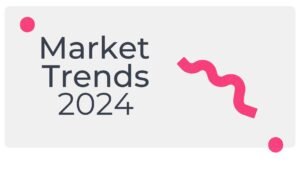Industry-Specific Resume Tailoring is a crucial step towards securing career opportunities in a competitive job market. In the dynamic landscape of professional pursuits, the art of resume tailoring involves aligning one’s qualifications and experiences with the unique demands and expectations of a chosen field. In this comprehensive guide, Enlighten Careers provides expert insights and top-tier tips to elevate your Industry-Specific Resume Tailoring game. From researching your target industry to seeking feedback and revising your resume, each tip is meticulously crafted to empower job seekers with the knowledge and strategies needed to create impactful resumes that resonate with potential employers. Discover the nuances of effective resume customization and position yourself as an ideal candidate in your desired industry with these ten invaluable tips.
1: Research Your Target Industry
Researching your target industry is the cornerstone of effective industry-specific resume tailoring. It involves delving into the intricacies of the industry to understand its unique requirements, trends, and expectations. By conducting thorough research, job seekers can align their resumes with the needs of potential employers and stand out in a competitive job market.Key aspects of researching your target industry include identifying emerging trends, understanding the skill sets in demand, and familiarizing yourself with the language and terminology commonly used within the industry. This knowledge allows you to tailor your resume to highlight the qualifications and experiences most relevant to your desired field.
Furthermore, researching your target industry enables you to identify potential employers, understand their organizational culture, and tailor your resume to fit their specific preferences and values. It also helps you prepare for interviews by equipping you with valuable insights into industry-specific challenges, opportunities, and best practices.
To conduct effective research, leverage online resources such as industry publications, professional networking sites, and company websites. Engage with professionals in your target industry through informational interviews and networking events to gain firsthand insights and advice.

2: Review Job Postings
Reviewing job postings is a pivotal aspect of industry-specific resume tailoring. These listings serve as roadmaps, outlining the precise skills, qualifications, and attributes sought by employers within a given field. By dissecting job postings meticulously, job seekers gain insights into the language, terminology, and buzzwords prevalent within their target industry.
Identifying key keywords within job postings is crucial. These keywords encompass technical proficiencies, soft skills, certifications, and specific experiences sought by employers. For instance, a software engineer applicant should take note of keywords like “programming languages,” “agile methodology,” and “software development lifecycle.”
The next step involves strategically incorporating these keywords into the resume. They should seamlessly integrate into the skills section, work experience descriptions, and summary statement, ensuring alignment with the candidate’s genuine qualifications and experiences.Moreover, job postings serve as sources of inspiration and guidance for resume crafting. Analyzing the language, tone, and formatting of postings provides insights into industry norms and expectations. Incorporating elements that resonate with the culture and values of target companies enhances the resonance of the resume and signals alignment with organizational priorities.
In essence, reviewing job postings is a foundational practice in industry-specific resume tailoring. It equips job seekers with the knowledge and language needed to craft compelling resumes tailored precisely to the needs of potential employers. By leveraging this practice effectively, candidates position themselves for success in their job search endeavors.

3: Customize Your Objective or Summary
Crafting a tailored objective or summary statement is a pivotal aspect of industry-specific resume tailoring. This section serves as a concise introduction to your professional profile, offering recruiters a glimpse into your career goals, skills, and qualifications.To effectively customize your objective or summary, begin by carefully analyzing the job description and requirements of the positions you’re targeting within your desired industry. Identify key themes, qualifications, and attributes sought by employers, and tailor your objective or summary to reflect your alignment with these expectations.
Incorporate industry-specific keywords and phrases that resonate with the language and terminology commonly used within your target field. Highlight your relevant experiences, skills, and accomplishments, emphasizing how they align with the needs and priorities of potential employers.Furthermore, your objective or summary should convey a clear and compelling narrative that showcases your unique value proposition as a candidate. Focus on articulating your professional goals, expertise, and passion for the industry in a concise and impactful manner.
By customizing your objective or summary statement, you demonstrate your commitment to the industry and your understanding of its specific requirements. This tailored approach not only enhances the relevance of your resume but also helps capture the attention of recruiters and hiring managers, increasing your chances of securing interviews and advancing in your career.
In summary, customizing your objective or summary statement is an essential component of industry-specific resume tailoring. By aligning this section with the expectations and preferences of your target industry, you can effectively position yourself as a qualified and motivated candidate poised for success.

4: Highlight Relevant Skills and Experiences
Highlighting relevant skills and experiences is a key aspect of industry-specific resume tailoring. This process involves identifying and showcasing the qualifications, accomplishments, and proficiencies that closely align with the requirements of your target industry.To effectively highlight your skills and experiences, start by carefully reviewing job postings and industry trends to understand the specific attributes sought by employers. Identify key skills, technical proficiencies, and experiences that are highly valued within your desired field.
Once you’ve identified these key elements, strategically incorporate them throughout your resume, paying particular attention to the skills section and work experience descriptions. Use action-oriented language and quantifiable achievements to demonstrate your proficiency and impact in previous roles.Moreover, prioritize the skills and experiences most relevant to the positions you’re targeting within your industry. Tailor your resume to emphasize those qualifications that directly align with the job requirements and employer expectations.
In addition to technical skills, don’t overlook the importance of soft skills and personal attributes. Effective communication, problem-solving abilities, and adaptability are universally valued traits that can enhance your candidacy in any industry.
By highlighting your relevant skills and experiences, you not only demonstrate your suitability for roles within your target industry but also differentiate yourself from other candidates. This tailored approach increases your chances of capturing the attention of recruiters and securing interviews for coveted positions.

5: Incorporate Industry-Specific Keywords
Incorporating industry-specific keywords is essential in optimizing your resume for your target field. These keywords are specific terms, phrases, and technical jargon commonly used within the industry. By strategically integrating them throughout your resume, particularly in the skills section, job descriptions, and summary statement, you increase your chances of catching the attention of applicant tracking systems (ATS) and recruiters. Research job postings, industry publications, and professional networks to identify relevant keywords. Incorporating these keywords authentically and contextually enhances the relevance and visibility of your resume, aligning it closely with the expectations of potential employers in your desired industry.

6: Quantify Your Achievements
Quantifying your achievements is a critical aspect of industry-specific resume tailoring. Instead of merely listing job responsibilities, quantifying achievements adds credibility and provides concrete evidence of your impact in previous roles. When quantifying achievements, use specific numbers, percentages, or other measurable metrics to demonstrate the scope and significance of your accomplishments.
For example, rather than stating “increased sales,” quantify the achievement by specifying the percentage increase or the revenue generated. Similarly, if you streamlined processes, mention the percentage reduction in turnaround time or cost savings achieved.Quantifying achievements not only provides clarity but also makes your resume more compelling and memorable to recruiters. It showcases your ability to deliver tangible results and adds substance to your qualifications.
Moreover, quantifiable achievements are particularly effective in competitive industries where employers seek candidates who can demonstrate a track record of success. By quantifying your achievements, you differentiate yourself from other candidates and position yourself as a high-impact professional who can drive results.Incorporating quantifiable achievements throughout your resume demonstrates your value proposition and strengthens your candidacy for roles within your target industry. Remember to tailor your quantified achievements to align with the specific requirements and priorities of each position you apply for, highlighting those accomplishments most relevant to the job at hand.

7: Tailor Your Education and Certifications
Tailoring your education and certifications is paramount in industry-specific resume tailoring. While your educational background and certifications provide important credentials, highlighting those most relevant to your target industry enhances your candidacy.Begin by reviewing the job requirements and industry standards to identify the most sought-after qualifications. If you possess multiple degrees or certifications, prioritize those directly applicable to your desired field. For instance, if you’re pursuing a career in healthcare, emphasize relevant degrees, such as a Bachelor of Science in Nursing or certifications like CPR and ACLS.
Moreover, consider highlighting coursework, projects, or specialized training that align with the needs of your target industry. If you completed a relevant internship or participated in industry-specific workshops, showcase these experiences to demonstrate practical skills and industry knowledge.
Additionally, stay updated on industry trends and advancements to ensure your education and certifications remain relevant. Pursue additional certifications or continuing education opportunities that enhance your skill set and demonstrate your commitment to professional growth. By tailoring your education and certifications to your target industry, you demonstrate your alignment with industry standards and your readiness to contribute effectively in your desired field. This strategic approach strengthens your resume and increases your appeal to potential employers seeking candidates with relevant educational backgrounds and certifications.

8: Use Industry Jargon Appropriately
Using industry jargon appropriately is a critical aspect of industry-specific resume tailoring. While incorporating relevant terminology can demonstrate your familiarity with the field and enhance your credibility, it’s essential to use it judiciously and in context.Start by researching the common jargon, acronyms, and technical terms used within your target industry. Analyze job postings, industry publications, and professional networking sites to identify prevalent terminology.
When incorporating industry jargon into your resume, ensure that it enhances rather than detracts from your message. Use it sparingly and only when it adds value to your qualifications and experiences. Overuse of jargon can make your resume difficult to understand and may alienate recruiters who are not familiar with the terminology.
Moreover, contextualize the use of industry jargon by providing clear explanations or examples where necessary. This helps ensure that your resume remains accessible to a wide audience while still demonstrating your expertise and fluency in the field.Ultimately, using industry jargon appropriately showcases your insider knowledge and demonstrates your ability to communicate effectively within the industry. By striking the right balance and integrating terminology thoughtfully, you can create a resume that resonates with hiring managers and positions you as a knowledgeable and competent candidate in your desired field.

9: Customize Your Work Experience Section
Customizing your work experience section is a cornerstone of industry-specific resume tailoring. This section provides a detailed overview of your professional background, highlighting key accomplishments, responsibilities, and skills relevant to your target industry.Start by carefully reviewing the job description and requirements of the positions you’re targeting. Identify the specific skills, experiences, and qualifications sought by employers within your desired field.
Next, tailor your work experience descriptions to emphasize accomplishments and experiences that directly align with the needs of your target industry. Use action verbs and quantifiable achievements to showcase your contributions and impact in previous roles.
Moreover, prioritize relevant experiences and achievements, placing them prominently within your work experience section. Focus on highlighting projects, initiatives, and responsibilities that demonstrate your ability to excel in your chosen field.Incorporate industry-specific keywords and terminology throughout your work experience section to optimize your resume for applicant tracking systems (ATS) and increase its visibility to recruiters.
Finally, ensure that your work experience section tells a cohesive and compelling story of your professional journey, highlighting your progression, achievements, and contributions within the industry.By customizing your work experience section to align with the expectations and preferences of your target industry, you demonstrate your suitability and readiness for roles within that field. This tailored approach enhances the relevance and impact of your resume, increasing your chances of securing interviews and advancing your career within your desired industry.

10: Seek Feedback and Revise
Seeking feedback and revising your resume is a crucial step in industry-specific resume tailoring. After crafting your tailored resume, it’s essential to gather input from mentors, colleagues, or industry professionals to ensure its effectiveness.Feedback helps identify areas for improvement, such as clarity, relevance, and alignment with industry standards. Constructive criticism can provide valuable insights into how your resume is perceived by hiring managers and whether it effectively communicates your qualifications and experiences.
When seeking feedback, consider the perspectives of individuals within your target industry who understand its nuances and expectations. Their input can help you refine your resume to better meet the requirements and preferences of potential employers.After receiving feedback, take the time to revise your resume accordingly. Incorporate suggested changes, clarify ambiguous points, and fine-tune the language and formatting to enhance readability and impact.
Additionally, consider revising your resume periodically to reflect any new skills, experiences, or achievements gained since its last update. Keeping your resume current ensures that it remains relevant and competitive in today’s job market.By actively seeking feedback and revising your resume, you demonstrate a commitment to continuous improvement and professional development. This iterative process not only strengthens your resume but also increases your confidence and readiness to pursue opportunities within your desired industry.





